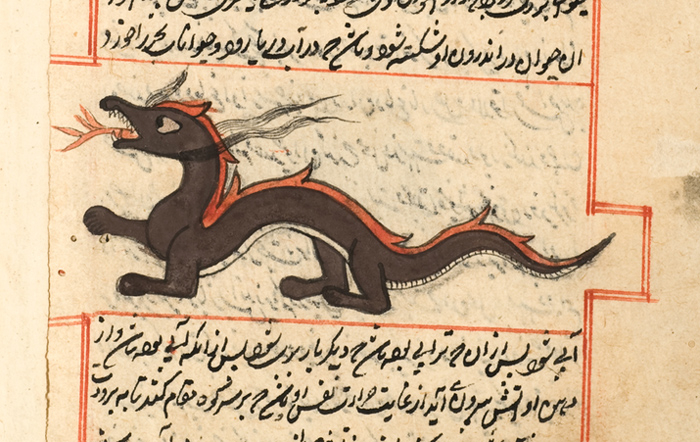“The worst part of the dragon is in the tail.” You do not have to know what it means; it gives off a spooky authority. This thought was written by Guillermo Cabrera Infante, the great Cuban writer who knew something about dragons’ tails: he had confronted Fidel Castro and lived to tell about it. While on a diplomatic mission to Brussels in 1965, he denounced Castro, abandoned his post and lived out a life of exile in London until his death in 2005. He never went back.
For a minute, let us call the dragon Islamic Terror (we shall get back later to the tail). There is much about the dragon we do not know: where he lives exactly, his vulnerabilities, his comings and goings, his next attacks, his feeding schedule. We do know that he foments terror and inspires fear. From the front part of the dragon, his snout, emerges a tongue flick — tasting the air, sensing out fresh victims. His first major tongue-dart at the West was the death threat — a fatwa with a bounty issued in 1989 by Iran’s Supreme Leader, Ayatollah Khomeini — on Salman Rushdie, a citizen of Britain citizen, for his novel, The Satanic Verses.
What the dragon learned with that initial thrust! The West was so genteel. The United Nations issued condemnations on — paper! Diplomats wrote scare-letters. Politicians said harrumph.

(Image source: wikia.com) |
Rushdie, on the other hand, was forced into hiding under armed, protective custody. Khomeini — who had just shoveled half a million young Iranians into a war with Iraq — in addition to exterminating thousands of “enemies of the Islamic Revolution” — also learned a lot about us. The response of the West was phlegmatic. The vast apparatus of publishing and communications zipped itself into a giant mouse suit and decided it looked great (so lifelike). Penguin Books chose not to print its address in the paperback edition of The Satanic Verses, as if that would hide it. Major book chains refused to stock the novel and libraries “disappeared” it from their shelves. Fellow novelists from around the world, from the safety of their hearths, proclaimed, “We are all Salman Rushdie.”
Even dragons know that novels, feeble though they may be, are the carriers of culture, core samples of a civilization’s memory. The dragon learned that in the West, it did not matter that fighter aircraft sear the skies at patriotic festivals, that nuclear submarines flow through ocean canyons, that warships ride the world’s watery trails. The West was not about to stick up for those who traversed the holies of Islam; instead, it clenched in fear and never unclenched.
How different the world would be if, in 1989, every publisher — large and small — had published some portion of The Satanic Verses on their front pages. How different if politicians and diplomats in the West had delivered the simple and forceful message back to the Ayatollah: Unless you remove this threat, we will cancel all diplomatic visas. But they did not, and this is now our world.
Novels tracking fundamentalist religious groups transplanting themselves into secular urban zones in the West go unwritten. Movies showing much of life under Islam go unfilmed. Satire of Muslim fundamentalism goes unproduced, while mockery of Christianity abounds. Comedians such as Penn Jillette, Sara Silverman, and Monty Python’s Michael Palin — entertainers who have grown wealthy proclaiming their atheism or mocking Christianity and Judaism — openly confess their fear of Islam; really just open confessions of cowardice. It should cover us in shame. “Cowardice,” wrote the novelist Mikhail Bugokov, in the darkest days of Stalin’s 1930s, “is the worst sin.”
The dragon doubtless now knows more about us than we know about him. But if we can reassert our freedoms — faith, speech, ideas, laughter and definitely mockery — we can still avoid his tail.
Dex Quire is a Seattle writer whose latest novel is Crocodile Words.
























